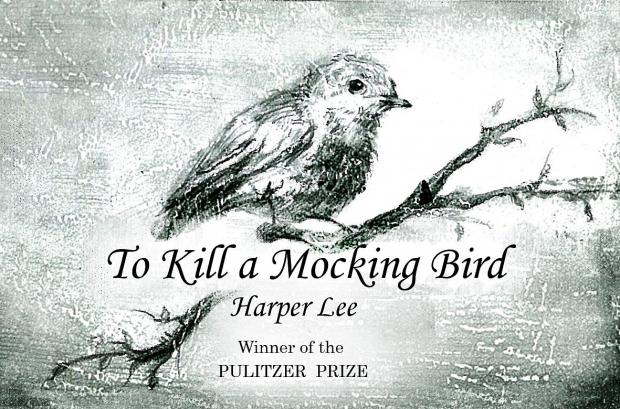Looking back at human history, there is no shortage of cruel and horrible stories. Later generations always think terrible of predecessors, just as how we look at the slave trade, Nazi concentration camps, and the Nanjing Massacre. I don't know how future generations will recall the story of the chained Chinese mother of eight in Fengxian County, Xuzhou, Jiangsu Province, and how they will look at us who are so indifferent.
In the book To Kill a Mockingbird, Atticus Finch said, "If this thing’s hushed up it’ll be a simple denial to Jem of the way I’ve tried to raise him. Sometimes I think I’m a total failure as a parent, but I’m all they’ve got. Before Jem looks at anyone else he looks at me, and I’ve tried to live so I can look squarely back at him... if I connived at something like this, frankly I couldn’t meet his eye, and the day I can’t do that I’ll know I’ve lost him. I don’t want to lose him and Scout, because they’re all I’ve got. "
I believe many have read this book. The story happened in the 1930s in a small town in southern America during the Great Depression. There was serious racial discrimination in the backward town of Maycomb. A white father accused a black man named Tom of raping his daughter. The whole town believed that it was Tom who raped the white girl Mayella. Only one lawyer named Atticus defended him. Naturally, he was isolated by the whole town and his children suffered at school.
At this point, we, as the audience, are sure to be worried about Atticus and his children, but have we ever reflected on whether we could be one of the biased people in the town?!
When Atticus' son Jem asked him why he defended a black man against the public, Atticus said, "The one thing that doesn't abide by majority rule is a person's conscience."
As the great and extensive Chinese sage culture would not teach us to "sit things out", or believe in "karma" as the root of poor people.
I believe that people's compassion would be awakened sometime, because most of us have daughters, mothers and wives, and at least half of our population are women.
Data shows that, in 2010, there were 123,364 permanent residents who lived in Xuzhou but Xuzhou but their household registration was outside of Jiangsu Province ("inter-provincial floating population"), including 61,878 males and 61,486 females. It was so balanced that there seemed to have no phenomenon of male superiority over females, and it indicated that there was no indiscriminate killing of female infants. But if we look carefully, the story would be completely different. There was 85.876 million inter-provincial floating population in the whole of China that year, including 48.35 million males and 37.51 million females. Males were nearly 30% more than females. Why was it balanced in Xuzhou’s data?
In Jiangsu Province, there were 7.379 million residents with a registered residence in other provinces, of which 4.056 million were males and 3.324 million were females. There were 20% more males than females. It is not difficult to understand that more immigrants were males in Jiangsu. But in Fengxian county, there were 7,774 immigrants, including 3,372 males and 4,402 females, with a male-female ratio of 43∶57.
Obviously, Fengxian County has more female immigrants. Look at the differences between the countryside and the city. There were 2,862 males and 2,032 females who immigrated to Jiangsu in the city, while there were 510 males and 2,370 females who immigrated into Jiangsu in the countryside, with a male-female ratio of 18∶82.
The question is, why were there more women immigrants in the countryside of Fengxian county? If they came for work, what occupations could it be so that there were more women in rural areas than towns, more in towns than cities, and more in northern Jiangsu than southern Jiangsu? If they came for marriage, what were the reasons for the women to choose northern Jiangsu rather than southern Jiangsu, and rural areas rather than towns?
Clearly, there was a horrible involuntary forced marriage here.
Hannah Arendt, a great German philosopher, put forward a word that offended the whole Jewish people-"the Banality of Evil". After experiencing the suffering, she thought deeply about the question put forward by the world: Who killed the Jews, the Nazi party, or Hitler? Wasn’t it also the silent mass?
Who is the accomplice who tied the chain around that woman's neck? If we keep silent, we need to listen to the voice of Dao Erdeng, a hot online writer, again, "There is a group of people who are brave only when they are safe, generous only when it is free, emotional only when they are shallow and sincere only when they are stupid".
May our sleeping conscience wake up tonight, because conscience is the most important thing that God has given us.
- Translated by Oliver Zuo











